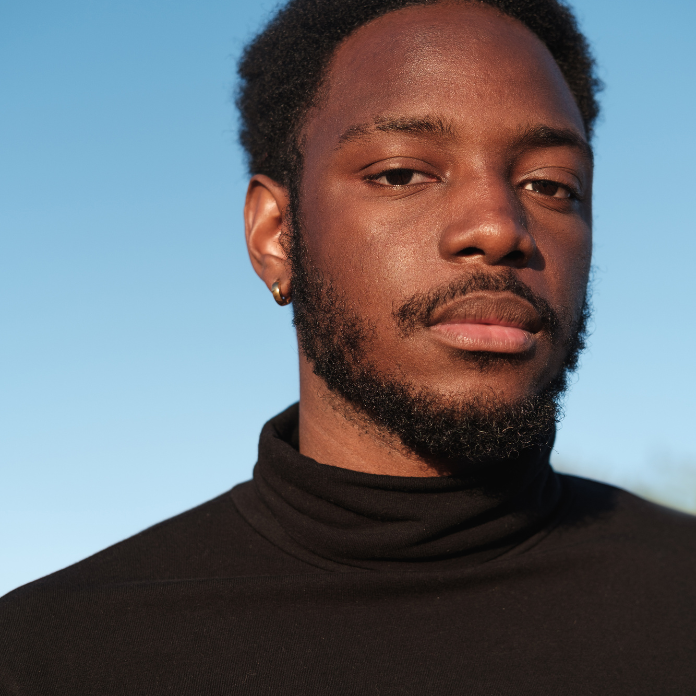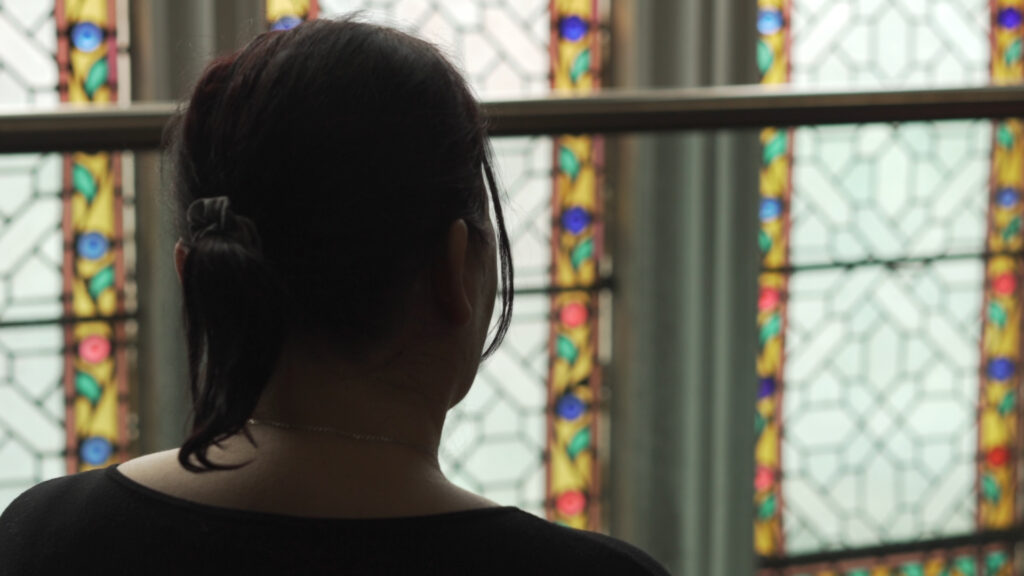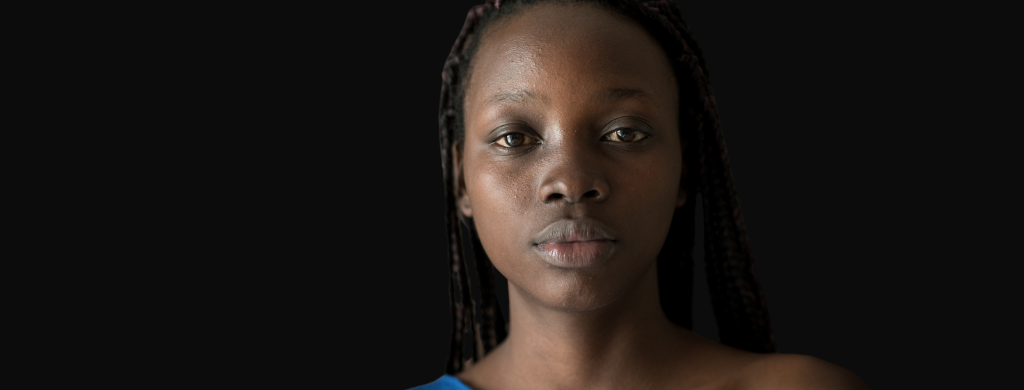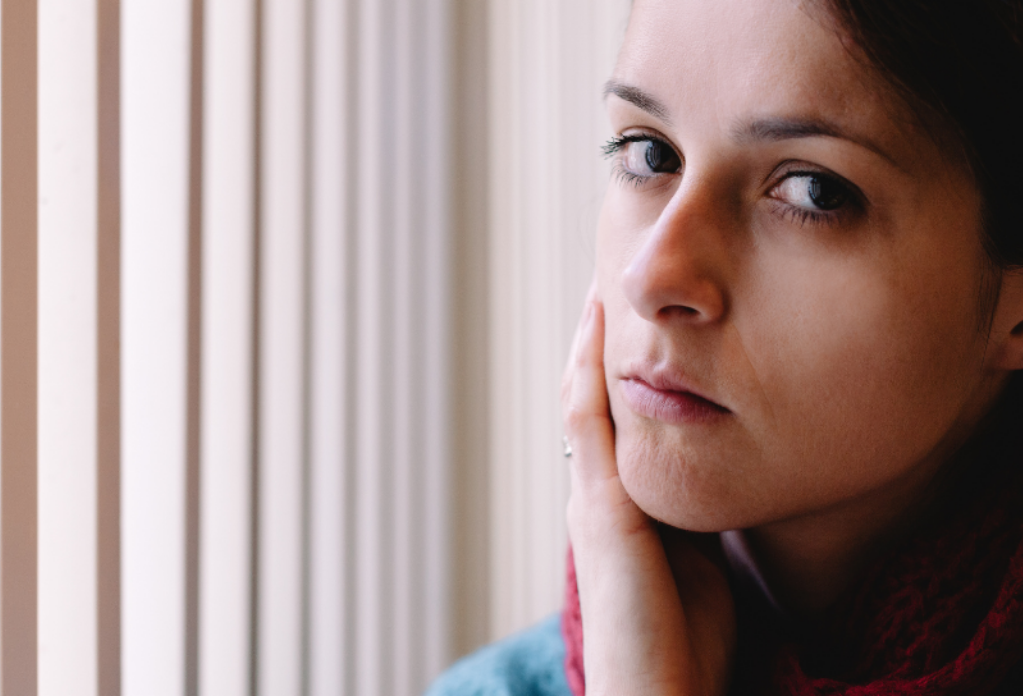
Wayne’s story
“I got a job, and that’s where I was befriended by a guy. At the time I thought he was just a friend.”

Tania* was part of an enslaved crew of around 30 agricultural workers, forced to sleep in shipping containers and beaten if they uttered a word to their fellow victims.
Ordered to work from dawn to dusk, seven days per week, she was fed bread and boiled potatoes with the occasional sandwich or Mars Bar as a special treat.
The workforce was guarded by Russian-speaking thugs who ferried their slaves across the UK in minibuses and administered savage beatings for the smallest transgressions.
Tania arrived from her home in Latvia with a visa for a six month stay.
She had been promised work by an “agency boss” in her home country and arrived at Victoria bus station in London where she was met by a gang member.
She believed hotel accommodation had been arranged and was ushered, with other men and women, into the back of a minibus.
Tania said: “It was summer. We were driving and driving and I thought the hotel must be quite far away. It became dark and I did not know where I was. I spoke no English. We stopped in a village. A man took my passport and papers.
“We went into a house. The rooms were dark, there were a lot of people inside. Sleeping on the floor, everywhere.
“I said, ‘Who are these people?’ He punched me in the face. I was in shock. My nose was bleeding. I didn’t know that I’m not allowed to talk. If you talk you are beaten.
“He said I owed them £10,000 (for arranging her journey to the UK) and work started the next day.”
With blood pouring from her nose, Tania curled up on the floor in a corner of the room. At 6am she and around 20 others were loaded into mini-buses and driven to a farm. Although she says she will never forget the field she was put to work in, she has no idea where it was.
She said: “We had to fill boxes with peas. To fill one box took one day. They paid 30p for a box.

“I was counting and I was crying. It will take all my life to pay back this £10,000. I was crying, crying.”
Tania had to hide her tears because crying was also forbidden and punishable by beating.
Her crop-picking crew was guarded by two to five “terrible men” armed with sticks.
Discipline was brutal. The crop took three days to pick and they worked from dawn until the light failed, sleeping on the floor of shipping containers on the farm.
She said: “They treated us like we were animals.
“They chose some people and just for fun said, ‘You can drink water from the puddle. If you don’t want to drink they can broken(sic) all your body.”
Tania witnessed horrific violence during her enslavement and on one occasion watched as a man complained of toothache and was attacked by his captors with a hammer.
She said: “They take this hammer and just remove his teeth with the hammer and it’s all bleeding.”
She too had toothache and decided to extract her own to avoid an attack, but told one of the thugs she was worried about infection. He told her: “(The) ocean is big, your body can be food for fish.”
All the slaves were told that they were now illegal migrants and if they tried to escape, they would be arrested on sight by British police and jailed for 15 years. The threat was believed.
After two years of working in fields and greenhouses, Tania reached a breaking point: “One day when I go to bed, these two men hold a boy, maybe 16 years old, and another man he’s just beating him by the legs.
“I saw so much of this every day. I can’t see this madness anymore. I just said to them: ‘You are disgusting, you disgusting people. You are three adult men, you’re beating a little boy.’ He was skinny, he looked like a skeleton. They left the boy and just grabbed me.”
They dragged Tania outside and bundled her into the boot of a car. She said: “I knew they were going to kill me, but never mind. It was too much.”
Instead she was driven to a field where she was dragged out of the boot and the thugs, “…explained my situation. That I am nobody. Because I had broken the visa rule I must go to prison for 15 years. I started to be scared and they were gone. They left me on the field. It was dark, cold.
“I thought, ‘My God. Nobody wants me. I am not human. I said to myself, ‘I am nobody, I am nobody.’”
Tania had in fact been delivered almost into the arms of a different gang who she stumbled across after walking out of the field. Again Russian-speaking, her new captors asked her if she wanted to work and invited her to get on a bus.
The new boss was more lenient, she received £35 a week. Her accommodation was crowded but warm. The food was better. She and her fellow captives were allowed to speak and given a day and a half off every week.
Her work wasn’t in fields, she was sent to work as a dish-washer in a busy pub giving all her wages to her gang boss.
She was allowed to go into shops and began to pick up some English. She was forced to work for a further 15 years until in 2017 she plucked up the courage to escape.
On one of her afternoons off, she walked into a Citizens Advice Bureau and handed over a note which read: ”Please help me, I am not legal.”
The contact led to the Salvation Army who in turn referred her to our Women’s Safehouse.
Tania said: “I was moved to Unseen’s Safehouse where my case worker made me a cup of tea. I was given a room, but I could not sleep for many weeks.
“The team supported me to complete English courses, see my doctor.
“I remember a trip to a museum, I didn’t think I could go because I was illegal. My case worker knows how much I love history and told me I must go, it will be good for you and she was right. Volunteering in the museum was one of the happiest days of my life.”
Tania has volunteered at a various historical sites and with the Salvation Army. She continues to receive therapeutic support which aid her recovery from her experience.

“I got a job, and that’s where I was befriended by a guy. At the time I thought he was just a friend.”

Suffering from abuse all her life, sexual exploitation and domestic slavery were normal.

Katherine suffered years of constant abuse at the hands of her exploiter before finally finding freedom

• Registered charity number 1127620
• Unseen UK is a registered charitable company limited by guarantee in England and Wales
• Registered company number 06754171
© Copyright 2021 Unseen UK
| Cookie | Duration | Description |
|---|---|---|
| cookielawinfo-checkbox-analytics | 11 months | This cookie is set by GDPR Cookie Consent plugin. The cookie is used to store the user consent for the cookies in the category "Analytics". |
| cookielawinfo-checkbox-functional | 11 months | The cookie is set by GDPR cookie consent to record the user consent for the cookies in the category "Functional". |
| cookielawinfo-checkbox-necessary | 11 months | This cookie is set by GDPR Cookie Consent plugin. The cookies is used to store the user consent for the cookies in the category "Necessary". |
| cookielawinfo-checkbox-others | 11 months | This cookie is set by GDPR Cookie Consent plugin. The cookie is used to store the user consent for the cookies in the category "Other. |
| cookielawinfo-checkbox-performance | 11 months | This cookie is set by GDPR Cookie Consent plugin. The cookie is used to store the user consent for the cookies in the category "Performance". |
| viewed_cookie_policy | 11 months | The cookie is set by the GDPR Cookie Consent plugin and is used to store whether or not user has consented to the use of cookies. It does not store any personal data. |
As I came to understand more about the issue, including through a visit to an Unseen safehouse, I knew I needed to do more to stop this abuse and exploitation.
For the last five years of my Civil Service career, I was the Modern Slavery Senior Policy Advisor in the Home Office and led on development of the Modern Slavery Act, including the transparency in supply chains provision and business guidance.
I joined Unseen to lead the development of the Modern Slavery & Exploitation Helpline, and Unseen’s work with businesses. I am regularly called upon to present at national and international conferences and use my experience of working with Ministers to influence other governments internationally to take action to address modern slavery and, in particular, business supply chain issues.
In my spare time I enjoy keeping fit, music, reading and travelling.
What ultimately compelled me to act was a report on how people from Eastern Europe were being trafficked through Bristol airport to the USA. Kate Garbers, who went on to be an Unseen Director, and I wrote to all the city councillors, MPs and the Police Chief Constable challenging them on the issue. The challenge came back to us: this city needs safe housing for trafficked women. And so Unseen began.
But we never wanted Unseen to be just about safe housing. We wanted to end slavery once and for all, and that remains our driving focus.
I chaired the working group for the Centre for Social Justice’s landmark report “It Happens Here: Equipping the United Kingdom to Fight Modern Slavery”. This is now acknowledged as the catalyst behind the UK’s Modern Slavery Act of 2015. It was a great honour to be awarded an OBE in the Queen’s Birthday Honours that year. On the other hand, I’ve also been described as “the loveliest disrupter you could ever hope to meet”.
This job has taken me from building flat-pack furniture for safehouses, to working with businesses to address slavery in supply chains, to delivering training, raising awareness and advising governments around the world.
When not at work, I enjoy travelling, spending time with my dog Harley, cooking, supporting Liverpool and Yorkshire CC, music (I’m a former DJ) and endurance events such as the Three Peaks Challenge and Tribe Freedom Runs – which I vow never to do again. Until the next time.